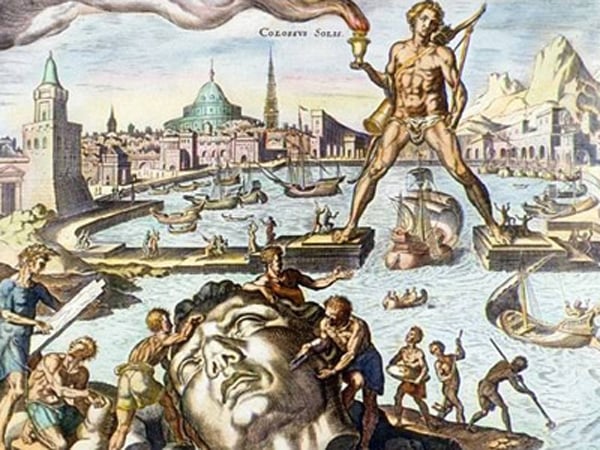Few sculptures have captured the imagination as the Colossus of Rhodes. Most of us like to imagine a statue straddling the harbour entrance to the island of Rhodes with ships passing through the gap between his feet.
Much as it is interesting to imagine such a statue, the truth is Colossus of Rhodes was a statue of the Greek god Helios and was built on the land facing the harbour in the traditional Greek manner of a nude man facing the sun and shielding his eyes from it. The Colossus of Rhodes has an interesting history to its construction.
After the death of Alexander the Great, his generals started fighting amongst themselves and divided his empire into three parts. The island of Rhodes supported Ptolemy and as a result incurred the wrath of Demetrius who along with his army landed outside the city to conquer it. He built many siege towers to try to conquer the city.
However, all the towers fell to a storm and Demetrius turned back. The citizens of Rhodes sold the material used to make the towers and with the money built the statue. This statue of Helios was a colossal one at a height of a hundred and ten feet. It was built by Chares of Lindos in early second century BC. It was made of bronze.
The Colossus of Rhodes which looked down upon all mortals fell to an earthquake and its parts lay scattered all over the harbour for centuries. Eventually the broken pieces were sold off by Arabs who came to the city to trade. Even though the statue stood only for 56 years it became a part of history as all Greek historians who came after its fall talked about its magnificence and made a legend of it. Pliny, the Elder wrote of the statue that it was not possible to wrap one’s arms around the thumb of the statue.
Now the statue is part of the legend surrounding Greek sculpture skills and has also served as an inspiration for Auguste Bartholdi in his construction of the Statue of Liberty.
